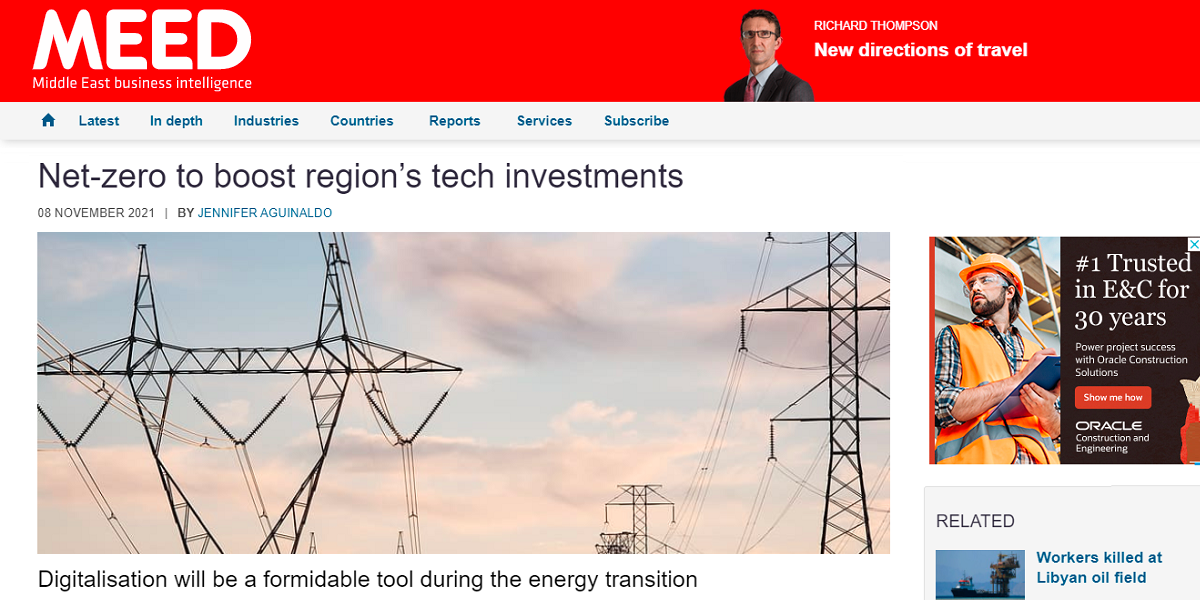Technology firms have a lot to gain from the net-zero commitments made by Saudi Arabia and the UAE last month. In fact, AI technologies, IoT and Big Data may have the biggest roles to play.
I was asked by MEED, a leading Middle East business intelligence service, whether this presents a real opportunity for local startups and tech firms, or whether opportunities will simply be gobbled up by global players.
Saudi Arabia and the UAE committed to net-zero carbon emissions in advance of Cop26, the 2021 United Nations Climate Change Conference in Glasgow.
- The UAE committed to becoming carbon neutral by the year 2050 and to invest AED 600 billion ($163 billion) in clean energy.
- Meanwhile, Saudi Arabia pledged to reach net-zero by 2060, investing SAR 700 billion ($187 billion) in climate action by 2030.
Big renewable energy projects and national legislation are obviously important for countries wanting to make fast progress, but there is also a huge opportunity to empower government entities, the private sector and consumers to better manage energy consumption and carbon footprints.
Experts agree that top-down strategies must be combined with bottom-up initiatives that allow businesses and consumers to participate in the drive to net-zero. This is why I say that the Saudi and Emirati net-zero pledges will create opportunity for local firms. Consumers and organisations are subject to local laws, avail of local services on the ground and are subject to other factors particular to their location, citizenship and juristictions.
An organisation’s ability to manage its energy consumption, energy efficiency and waste is often dependent on the applicable regulations and services available in their country, at their locations”
Both organisations and consumers will need better tools and digital services to manage their own net-zero efforts effectively. This provides an enormous opportunity for tech firms across a wide variety of technologies. I believe that AI and data analytics have a crucial role to play here in helping all stakeholders understand how their own efforts contribute to carbon neutral goals.
It also makes perfect sense that apps and digital services that support carbon neutral goals are developed in the region, for the region, taking into account language requirements, government regulations, energy suppliers and available local services.
If you are a MEED subscriber, you can read Jennifer Aguinaldo’s full article here.


